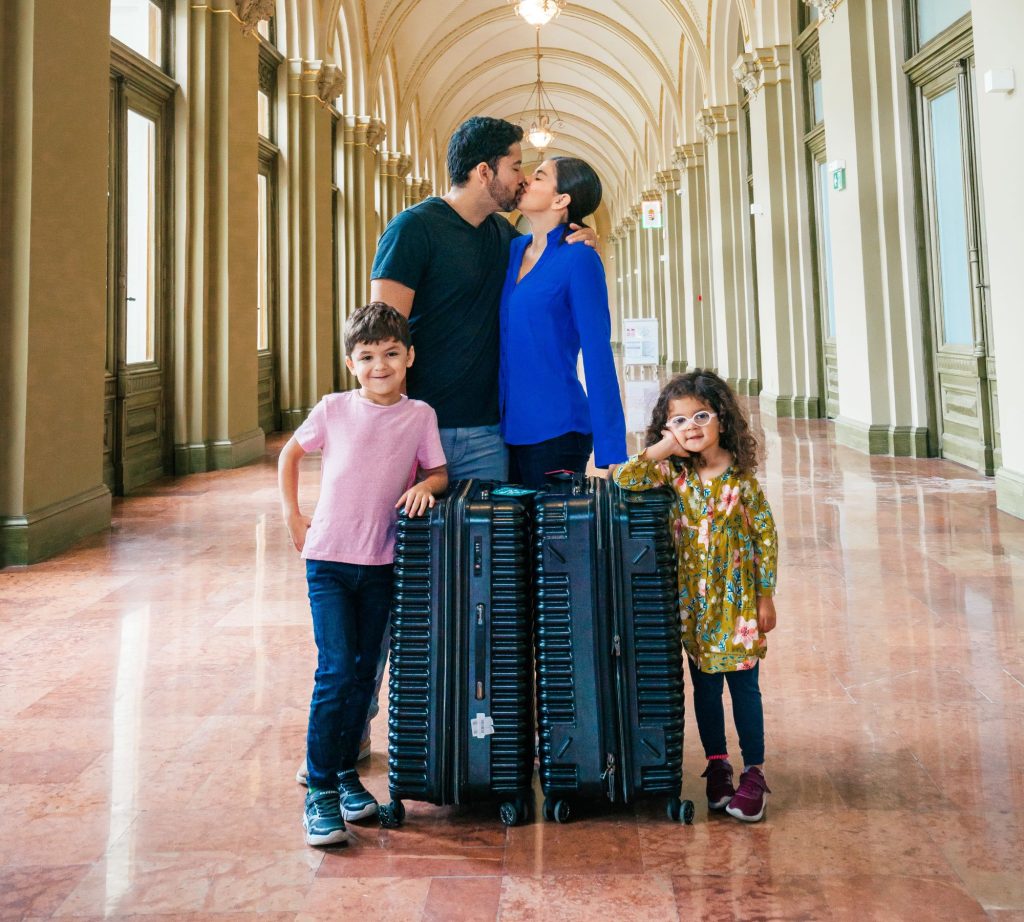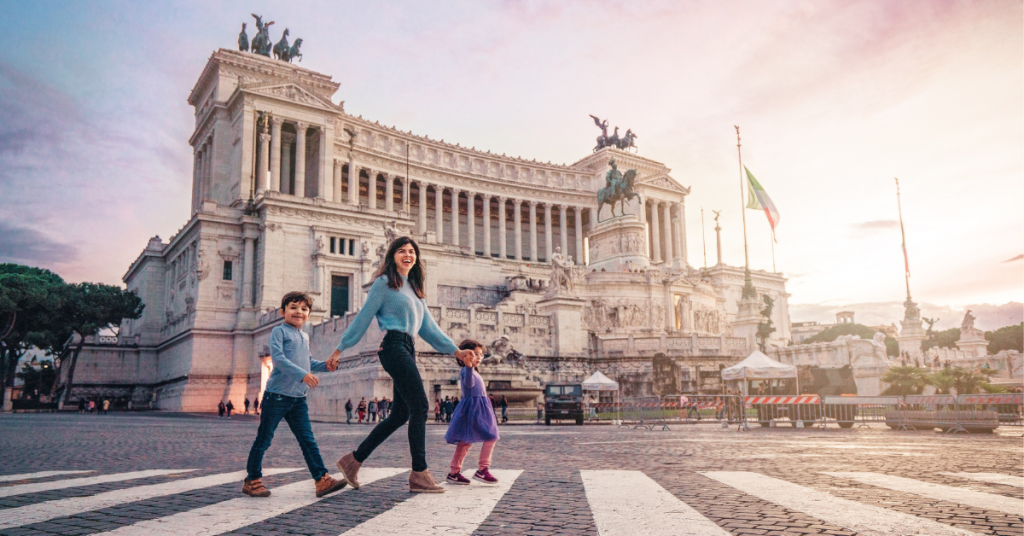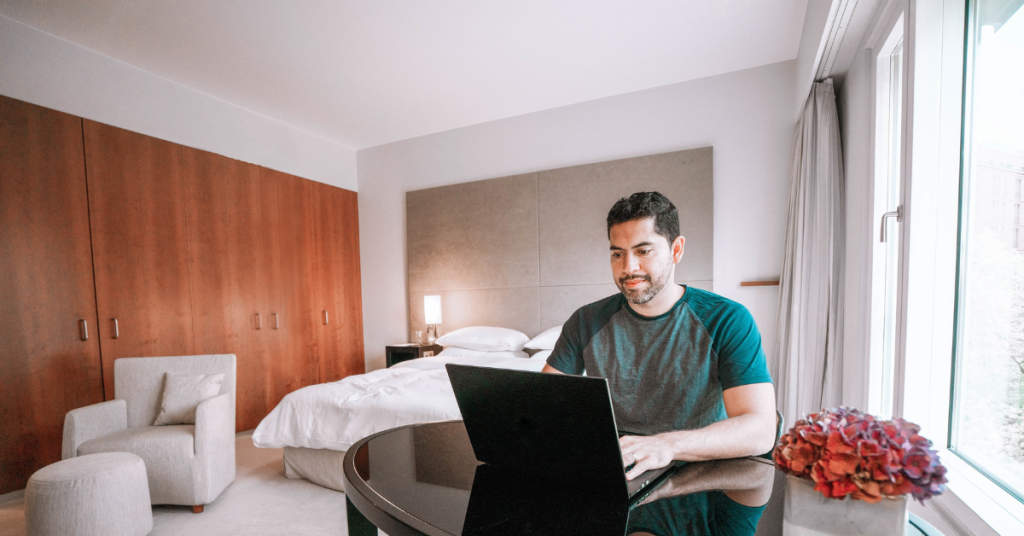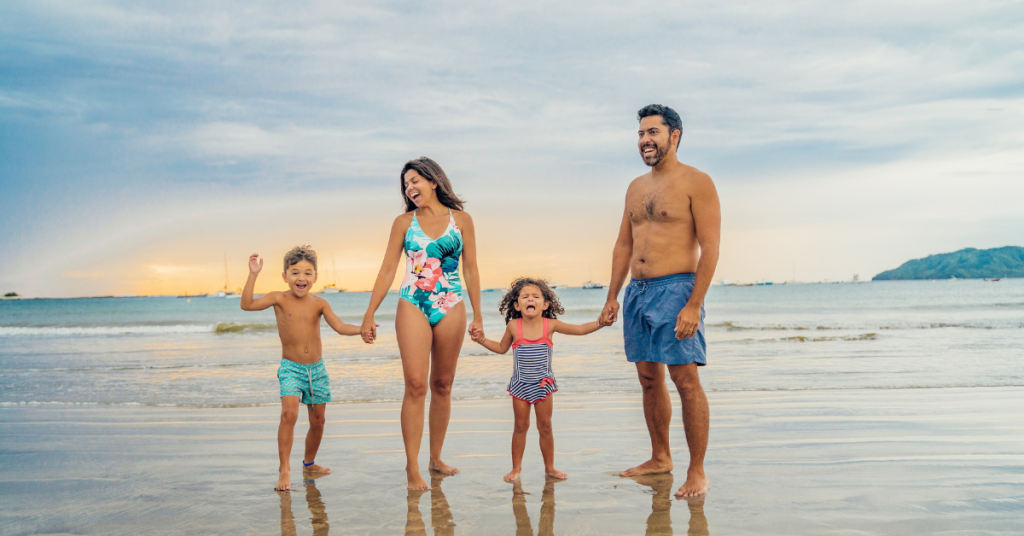In 2018, we sold most of our stuff, quit our jobs and started a full-time adventure around the world. We’ve been location independent ever since, and have learned plenty of lessons that definitely would have made our full-time travels easier! Here are some top things we wish we knew before we traveled full-time.
Preparation
1. You’re not going to feel ready no matter how much you prepare. There’s likely a long list of things that you have to do prior to leaving for a full-time adventure. Selling things, deciding on what to keep, planning out school for the kids, setting an itinerary, etc. But no matter how much you do during the preparation phase, you most likely will feel a nervous sense that you didn’t prepare enough. And that’s normal! Trust your planning and know that once you’re finally out and about, all that preparation will pay off and you will be just fine!
2. People are going to doubt you or your lifestyle, and that’s okay. I’m not sure why when we announced our full-time plans, we were expecting joy and celebration from friends and family. And we did get some of that. However, we also got a lot of confusion, doubt, and anger for our plans. We were told we were being irresponsible and unsafe. We were constantly asked why we were giving up a secure lifestyle. For a time, it made us anxious to think we may be making the wrong decision. But thankfully, it also gave us the nudge that we needed to really go for it. We wanted to prove those doubters wrong! So while it feels like having a chip on your shoulder, we were able to transform those doubts into motivation to continue moving forward a little bit at a time.
3. There’s a small, but very caring community of fellow family travelers. Honestly, this point totally helped us cope with the doubts from the point above once we were on the road. Every time we went to a new destination, we’d happen to come across other expats or full-time adventurers. Given the fact that we loved travel, it was an instantaneous connection that we really appreciated. It’s great not having to explain your decision, and instead just focus on the destination, others’ experiences and the joy of exploration.
Full-Time Routine
4. It’s going to be harder for others to relate to your lifestyle. When we returned home for temporary stops, we expected friends and family to be curious about our adventures. We were so excited to share our favorite and not-so-favorite travel moments. However, after a brief period of interest, the conversation tends to shift back to relate to traditional lifestyle. After all, traveling full-time is a lifestyle that is very unrelatable, and some people are just not going to have as much interest in it as you do.
5. Maintaining the lifestyle is a marathon, not a sprint. When you become location independent, it feels as if you’ve opened up a door into the unknown, with endless possibilities for where to go. Chances are you’ll want to plan a lot of excursions, activities, and destinations. But with that also comes the risk of burnout if you don’t take time to slow down and reflect (see below). It takes time to find balance between fast and slow travel, so do your best to control that impulse to see and do it all!
6. Reflecting on previous trips is critical! When we first started, we’d be going from place to place every couple of days. We were fueled by the thrill of the next destination. But after a while, the experiences felt like they were blurring and blending together because of that flood of new memories. After a while, we learned that we needed to build in downtime to reflect on our previous experiences. We’d ask ourselves what we loved and didn’t. We’d rest our bodies to fully prepare for the next experience. And once we did that, it felt like we were finding more endurance for long-term travel.
7. You’re not going to love every place you go to. Living a full-time adventure lifestyle feels like such a gift. We were constantly in awe of what we had worked towards and what we were experiencing. So when we went to a place where we didn’t experience what we expected, it was a very weird feeling. While digging deep to find the positives of that destination helped a bit, we realized it’s also okay to not like something. For example, Bali is a destination we’d heard amazing things about. But when we arrived, aside from the incredibly kind people there, we also felt somewhat underwhelmed due to the crowding on the island. This also taught us not to expect the same type of experience that someone else may have had, because circumstances are likely going to be different depending on season, weather, etc.
8. There’s also places that will delight and surprise you unexpectedly. When we arrived in Cambodia, we thought we’d have a relaxing couple of days, see Angkor Wat, and then move on to the next destination. But what we found was that the people that we met were incredibly kind, there were dozens of activities that we wanted to do, and that visiting Angkor Wat at sunrise was transformational. We learned that sometimes we need to build in flexibility into our schedule, so that if we really enjoy a certain destination we can extend that trip without feeling pressured to move on.
Organization
9. Keeping a Daily Activity Log helps more than you know. I’m not sure why, but early on I decided to log every single day of our full-time adventures. I’d list where we were, what we did, where we stayed, and what we ate every single day for 2 years. While it wasn’t super relevant during the trip, it was really great to use that activity log as a reflection tool every now and then. It also made it really easy to note how many countries (45) and cities (147) we visited, flights we took (73), and beds we slept in (135). And now when we need to look up dates we visited a certain area, we just check the activity log and find it.
10. Having a better organizing system for all our digital files would have made things much easier. As travel content creators, taking pictures and videos was one of our primary activities while traveling. However, we never set up a great system to organize our files. We’d have things spread across SD cards, portable hard drives, our laptops, and Google Drive. Now that we have a home base and repurpose a lot of our content, I wish we could have dedicated ourselves to creating a filing system that would make it much easier to find certain pictures or videos. Don’t make the same mistake we did and come up with a good way to organize your files!
11. Take more pictures with your phone to capture moments for a digital picture frame later. When we moved back in to a home base, we got a Google Home hub that connects to our photos account and displays random pictures every couple of seconds. It’s amazing to be walking by and see a quick memory from something that happened years ago, and then see a recent photo as well. Now whenever we travel I make it a point to take pictures with my phone for the sole purpose of having them show up on our hub back at home eventually!
Expectations
12. You’re probably going to lose things along the way. No matter what preparation, process or routine you put in place, losing something is still highly likely. During our travels, we lost our daughter’s safety blanket, our camera, a phone, and we broke our laptop when it fell off of an RV shelf. As unfortunate as each of these losses are, you might need to save up some of your budget for replacements as needed.
13. Bad days make good stories. While we mostly have positive experiences during our travels, we’ve had some pretty bad ones too. We got stranded in Peru when our flight got canceled at 3am (on Father’s Day nonetheless). We were in the thick of the start of COVID in Vietnam and Thailand in February 2020. We all picked up a stomach bug in Colombia that took us out for a few days. We missed a flight that put an important collaboration in jeopardy. These were all terrible moments that we had to deal with, but we’ve also learned plenty of lessons about how to deal with stressful situations while traveling. And on the bright side, we now have some pretty entertaining stories to tell!
14. Your kids are far more resilient than you think. Our kids were 2 and 5 years old when we started traveling full-time. Our youngest was still in diapers, and our oldest had battled some health issues prior to leaving. We were prepared to slow down at any moment if we got the sense that our kids weren’t handling the transition well. But, they absolutely rocked the experience! They approached new locations with curiosity, and gained amazing intangible traits like courage, respect, and global awareness. They transitioned from fussy kids on flights and cars, to patient, accustomed travelers in a short matter of time. We couldn’t be more proud of how our kids adjusted to this lifestyle, and it’s very likely your kids will do so too!
15. Unpredictability becomes a routine in itself (and you build muscle memory for it). When traveling full-time, constant newness was our routine. Once we figured out the logistics of travel days (which are simpler than you think since you always travel with the same stuff), those transitions to new locations became “just another day.” Building the muscle memory to embrace the unexpected and learn to roll with it is a beautiful quality that we’ve picked up from travel.














